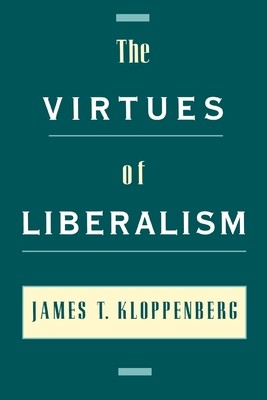
- We will send in 10–14 business days.
- Author: James T Kloppenberg
- Publisher: Oxford University Press, USA
- ISBN-10: 0195140567
- ISBN-13: 9780195140569
- Format: 15.2 x 23.3 x 1.6 cm, softcover
- Language: English
- SAVE -10% with code: EXTRA
Reviews
Description
This spirited analysis--and defense--of American liberalism demonstrates the complex and rich traditions of political, economic, and social discourse that have informed American democratic culture from the seventeenth century to the present. The Virtues of Liberalism provides a convincing response to critics both right and left. Against conservatives outside the academy who oppose liberalism because they equate it with license, James T. Kloppenberg uncovers ample evidence of American republicans' and liberal democrats' commitments to ethical and religious ideals and their awareness of the difficult choices involved in promoting virtue in a culturally diverse nation. Against radical academic critics who reject liberalism because they equate it with Enlightenment reason and individual property holding, Kloppenberg shows the historical roots of American liberals' dual commitments to diversity, manifested in institutions designed to facilitate deliberative democracy, and to
government regulations of property and market exchange in accordance with the public good.
EXTRA 10 % discount with code: EXTRA
The promotion ends in 20d.17:58:41
The discount code is valid when purchasing from 10 €. Discounts do not stack.
- Author: James T Kloppenberg
- Publisher: Oxford University Press, USA
- ISBN-10: 0195140567
- ISBN-13: 9780195140569
- Format: 15.2 x 23.3 x 1.6 cm, softcover
- Language: English English
This spirited analysis--and defense--of American liberalism demonstrates the complex and rich traditions of political, economic, and social discourse that have informed American democratic culture from the seventeenth century to the present. The Virtues of Liberalism provides a convincing response to critics both right and left. Against conservatives outside the academy who oppose liberalism because they equate it with license, James T. Kloppenberg uncovers ample evidence of American republicans' and liberal democrats' commitments to ethical and religious ideals and their awareness of the difficult choices involved in promoting virtue in a culturally diverse nation. Against radical academic critics who reject liberalism because they equate it with Enlightenment reason and individual property holding, Kloppenberg shows the historical roots of American liberals' dual commitments to diversity, manifested in institutions designed to facilitate deliberative democracy, and to
government regulations of property and market exchange in accordance with the public good.


Reviews